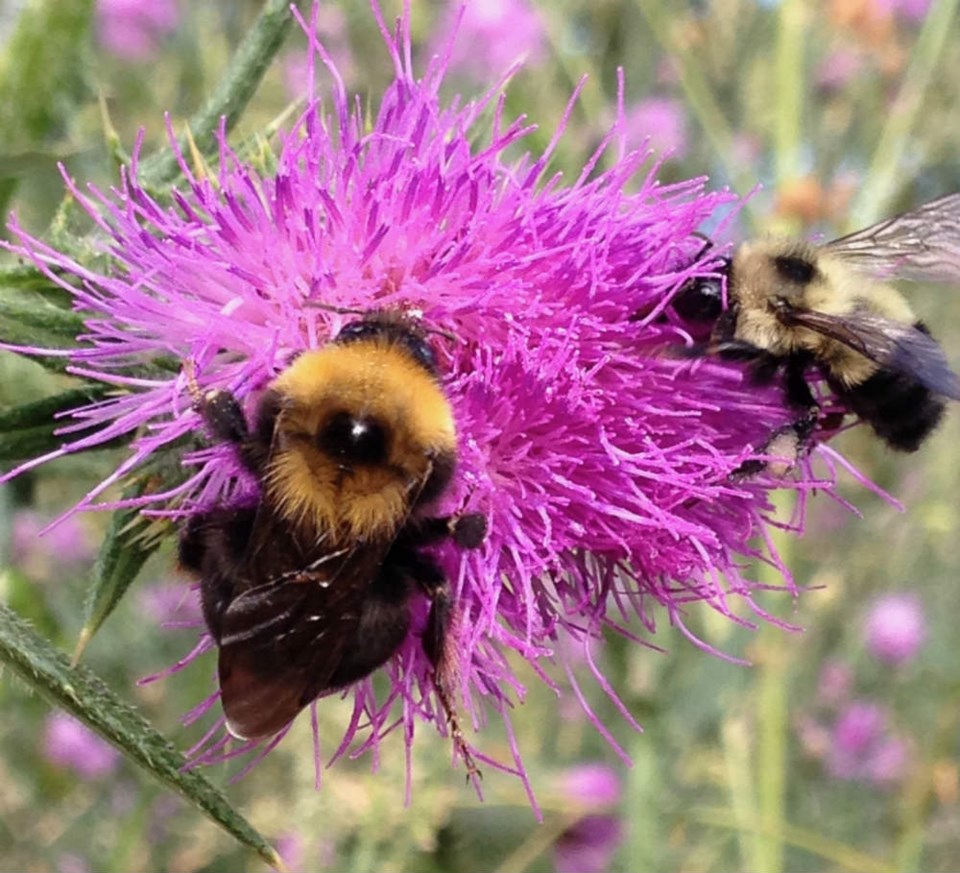 Bumblebees – Photo Erin Udal
Bumblebees – Photo Erin Udal
NatureKids BC has launched a citizen science project encouraging schools, families and nature clubs across the province to collect data on local pollinators.
“Citizen science is an opportunity to dive into a new universe for children and it’s a great educational tool that harnesses the intrinsic curiosity of children for the natural world. It’s incredibly powerful when children come to understand that they can make a real difference,” says NatureKids BC executive director Louise Pedersen.
Through surveys and education materials children will learn how to identify the different types of animals and insects that help to distribute pollen from one flower to the next as they forage, which fertilizes plants. B.C. is home to a variety of pollinators such as bees, wasps, flies, beetles, butterflies, hummingbirds and bats that consume the sugar-rich nectar from flowers.
Pedersen says the surveys get the kids "looking at what's around them and counting the different species to determine how many of each kind are out there in their local area."
Kids are asked to find an area with multiple types of flowers roughly half the size of a racetrack and divide the area into rows or plots that each child will be responsible for cover for the survey.
Kids will also be encouraged to get involved in stewardship activities that increase pollinator habitat as part of the project. Habitat loss, climate change and use of insecticides have contributed to declining populations of pollinators and parallel declines in the plants that rely on them.
Pollinators are important because they affect 35 per cent of the world's crop production, which humans and wildlife rely on for food to survive. Pollinators also sustain production of plant-derived medicine, according to the Food and Agriculture Organization of the UN.
Here are NatureKids BC's top five tips for making a pollinator-friendly garden:
- Use native plants if possible as these are adapted to our region and will provide the best food and habitat for our native pollinators.
- Plant plants that bloom at different times throughout the year and plant a variety of plant shapes, sizes and colours. This will feed and provide habitat for the greatest diversity of pollinators.
- Consider clustering types of native flowers together in large patches of around a square meter of each as these sorts of smorgasbords save pollinators from wasting time and energy.
- Create nesting sites for pollinators such as bee condos and leave some bare ground for nesting and provide water sources such as a shallow water dish or a puddle. Pollinators need water to survive.
- Don't use pesticides and be forgiving of "weeds" such as clover and dandelions.
The data kids collect will be analyzed by NatureKids BC pollinator citizen science coodinator Erin Udal and be used to create a report that will be presented to their partners to help inform choices about habitat management.
“Through this citizen science initiative, youth all across B.C. can contribute to generating local knowledge and awareness and can help our communities make more informed conservation decisions,” says Udal.
The registered charity is hosting a free event on Saturday, May 12 from 1 to 2:30 p.m. by UBC Forest Sciences Centre located at 2424 Main Mall.
Funding for the project is provided by the Habitat Conservation Trust Fund, TD Friends of the Environment and Nature Canada.


